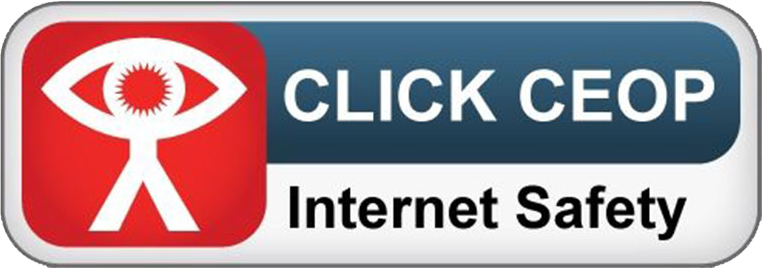Three Ways School values each member of the community as an individual. Through the PSHE&C curriculum we promote self - esteem and confidence, encourage responsibility and independence and enable pupils to develop positive relationships. This underpins the supportive learning environment and prepares pupils to take their part in the wider community.
Aims
themselves safe and healthy achieve the community and society education, training, careers and life after school
Content
The Scheme of Work for PSHE and Citizenship is organised as a modular programme covering each of the following areas during the academic year:
The content of the curriculum incorporates National Curriculum guidelines whilst addressing specific areas of importance to pupils with SEN.
Method and Organisation
As pupils progress through the school, each PSHE unit/topic builds on prior learning. Knowledge and skills are consolidated and extended as each area is revisited. It is the responsibility of class teachers to plan and deliver the relevant modules, tailoring the content to match the needs and maturity of the individuals in their class.
Cross Curricular Links
PSHE and Citizenship as well as being a discrete subject, is integral to learning and teaching across all the curriculum areas with particularly strong links to the Science and Humanities curriculum. Staff will endeavour to maximise opportunities for reinforcing learning and skills.
Assessment, Recording and Reporting
Planning, delivery and recording of the programme for PSHE is the responsibility of the class teacher. The teacher will provide appropriate learning opportunities and assess the progress of individual pupils through observation, review of work, video or photographic evidence.
Progress against National Curriculum learning objectives is recorded in the pupil’s annual report. Targets relating to SEN are agreed with pupils and parents and regularly reviewed and updated through their plan for learning. Achievement is recorded and reported in the Annual Review of the pupils Education, Health and Care Plan.
Accredited Assessment
Duke of Edinburgh Bronze Award
AQA Unit Award Scheme
Sex & Relationship Education (SRE) is concerned with the overall growth and development of the individual and is therefore seen as an integral part of the PSHE & Citizenship curriculum.
Three Ways School values the role parents play in helping their children to cope with emotional and physical aspects of growing up and in preparing them for the challenges and responsibilities which come with sexual maturity. Three Ways school seeks to complement and support the role of parents whilst recognising the difficult issues surrounding sexuality for young people with special needs. Parents are consulted regarding the curriculum content that is to be delivered and discussions are welcome.
Pupils are taught in groups according to maturity, with due regard for moral considerations and values of the family and community. Three Ways staff deliver SRE in consultation with the School Nurses. Occasionally, other outside agencies may present particular aspects of SRE in order to offer a broader perspective. Sensitive issues are presented in a broad and balanced way, free from sensationalism and personal bias.
This policy has been developed in consultation with parents and pupils.
RIGHTS To enable pupils to:
RESPONSIBILITIES For pupils to develop:
RESPECT To develop mutual and self-respect
RISK To develop an individual knowledge & understanding of the risks involved in particular behaviours, including internet use in this context.
Procedures
The SRE component of the PSHE & Citizenship scheme of work is identified under the heading “Developing a Healthy, Safer Lifestyle” and is based around a modular programme, incorporating National guidelines. It is supported by all components of the PSHE & Citizenship topic and the underlying philosophy embedded in the values and attitudes upheld in Three Ways.
Discrete SRE is delivered from Year 6 – 11 by the class teacher using the school overview and supported by the school nurses. These modules remain a working document commensurate with the specific needs of the current group. Some aspects will be taught in single gender groups as appropriate.
Assessment, Recording, Reporting
Teachers will look for understanding in relation to maturity and build on previous experiences. Assessments will be made in discussion with the pupils themselves.
Parents have the right to withdraw their child from all or part of the SRE curriculum; however the school would strongly recommend that all pupils have access to these modules and staff are happy to discuss any details with parents.
SRE is addressed in 6th Form PSHE sessions following the AQA Unit Award Scheme. The school nurse supports the curriculum where required in 6th Form.
Confidentiality
Parents are kept informed of the content of the SRE curriculum. Children’s individual needs will not be discussed in a classroom setting, fictitious examples are used. School nurses are instructed by their code of practice to maintain confidentiality (unless there is a child protection issue).
During SRE sessions a ‘private’ sign will be placed on the classroom door indicating the importance of confidentiality to pupils. Teachers maintain confidentiality (unless there is a child protection issue).
Child Protection Procedures
Confidentiality- If a child/ young person confides in a member of staff and requests that the information is kept secret, the member of staff will explain to the child/ young person that any information that will protect the child from harm will be passed on to the relevant agencies.
If a child discloses information or displays behaviour that may cause the member of staff concern, the Member of staff will inform the Headteacher who will initially discuss with parents (unless it would put the child at risk to do so).
Once parents have discussed the issues with the Headteacher she will make a decision, preferably in collaboration, as to seeking advice from Social Services or other appropriate agencies.


